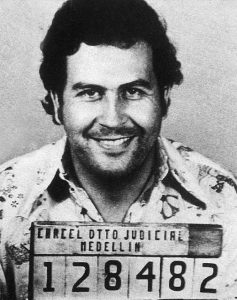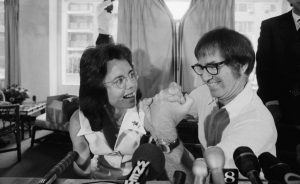“In 1492, Columbus sailed the ocean blue.” Christopher Columbus is one of the first people we learn about in elementary school, and the discovery of the “New World” is accredited to him. One might think that he knew that he had accomplished a great feat, but in reality he did not accomplish what he had originally set out to do.
Christopher Columbus was born in 1451 in Genoa, Italy, to Domenico Colombo and Susanna Fontanarossa. His fascination with sailing began with the Portuguese merchant marine. Shortly after surviving a shipwreck off the coast of Portugal on his first voyage in 1476, he based himself in Lisbon.1 He sailed again in 1477 and 1478, and married in 1479. From 1477 to 1485, Columbus traded along the Guinea and Gold coasts of West Africa, where he started gaining knowledge of Portuguese navigation and the Atlantic wind systems. It was during this time that Columbus came to the conclusion that sailing west would eventually lead him to the east coast of Asia.2 After bringing his idea to the Portuguese King in 1485 and again in 1488, and being rejected, he took his idea to Genoa. Rejected yet again, he then headed to Venice in search of funding. Hit by rejection once more, he took his plans to Spain in 1486, to King Ferdinand of Aragon and Queen Isabella of Castile, where he was rejected for the fourth time.3

In January of 1492, in hopes of being able to gain more strength than Portugal, and hopes of spreading the Christian mission, King Ferdinand II and Queen Isabella I decided to fund Columbus. In August of 1492 Columbus sailed out from the Spanish port of Palos on the now-famous ships Nina, Pinta, and Santa Maria.
Besides trying to reach east Asia, Columbus was intent on sailing west until he reached the Indies, where he believed riches of gold, pearls, and spice awaited.4 At the time, it was extremely difficult to access the sea route south from the Red Sea because of the Islamic powers in the Indian Ocean, and the increasing power of the Ottoman Empire was threatening the power of the Christian monarchies in Europe.5 In a letter before his journey Columbus wrote that he believed he would be able to conquer the infidel, gain victory for Christianity, and gain the westward route to discovery and Christian alliance. Being a religious man, Columbus was set on supplying funds to recapture Jerusalem from the Muslims, which matched up with the Christian crusade ideas.6

Columbus then continued to make three more trips. He made a second trip in 1493, a third voyage in 1498, and his fourth and final voyage was in 1502. All of these trips were sponsored by Spain.7
Given the title Admiral of the Ocean Seas by Spain’s monarchs, and still thinking he had sailed to Asia, Columbus died never knowing what he had discovered and created. Now, however, everyone knows that his discovery was one of the most significant in history.
- Encyclopedia Britannica, January 2016, s.v. “Christopher Columbus,” by Valerie Flint. ↵
- Funk & Wagnalls New World Encyclopedia, 2016, s.v. “Columbus, Christopher.” ↵
- Alphonse de Lamartine, The Life and Times of Christopher Columbus (Toronto: Sutherlands, 1887), 13-26. ↵
- Anam Haider, “Discovery of America by Columbus on 12th October 1492,” Discovery, Volume 2, Number 4, (October 2012): 3. ↵
- Encyclopedia Britannica, January 2016, s.v. “Christopher Columbus,” by Valerie Flint. ↵
- Delno C. West, “Christopher Columbus, lost biblical sites, and the last crusade,” Catholic Historical Review no. 4 (1992): 519. ↵
- Encyclopedia Britannica, January 2016, s.v. “Christopher Columbus,” by Valerie Flint. ↵


41 comments
Arianna Kennet
A very interesting article indeed. I have never really read about Columbus before, merely heard of his name, so this article did a good job on giving me insight on this man. Its great to see how he got way more than what he was expecting out of his travels here and there and his goals for going to those places. Interesting to see how different people have different perspectives of him.
Samuel Ruiz
I recall learning about this story early on and was shocked, and even skeptical, by the fact that Columbus stumbled upon an entirely different hemisphere of land. It actually still amazes me that a simple plan to find another trade route turned into a massive discovery. I always wander just how different history would be if Columbus had not discovered the New World when he did.
Samuel Ruiz
Interesting article. It is always different to read about views that disagree with the Catholic Church. Being a high practicing Catholic myself, it was hard to read this article, but I kept an open mind about it. What I found most interesting and honestly, was the Catholic Church’s practice of selling indulgences, which was something I had never heard of before. I would have loved to see more information about how Luther’s separation from the Church helped the Catholic Church evolve, but nonetheless it was a great article.
Tyler Sleeter
Interesting article. Like most people, I know the story of Columbus as taught by the public school system. However, I also have done some reading about him outside of school and understand why so many people are against the Columbus day holiday. Columbus may have had good intentions, but he is responsible for the devastation of the indigenous people throughout the areas he supposedly discovered. The only good thing I can think of to say about Columbus is that he was persistent and did not give up when he could not find funding for his journey.
Christopher King
Although I learned that Colombus was denied funding for his voyage, I feel there were a lot of information about his landings in the Americas that were cut short or left out. Colombus did not discover and was not the first European to come to the Americas. Also, he was a terrible person that exploited and enslaved that natives to work in mines. In a way he succeeded in one thing and that was gaining money and power.
Ezequiel De La Fuente
Liked how your article told of the facts that happened before Columbus’ voyage was funded and how he was denied four times, however I disagree with the rest. Columbus was not a Christian, no matter how much he claimed to be. Also, he didn’t discover anything. When he arrived to what he believed was “Asia” there were already inhabitants there. I couldn’t talk about it all in one comment, but I believe it’s despicable that we still practice “Columbus Day” in the U.S. Yes, it is history, but not one which we should praise or have a holiday for.
Cristian Medina-Lopez
Christopher Columbus should, in no way, be considered a saint by any means; however, that does not make his discovery of the Western World any less significant. It is almost comical how far off his great discovery was from his original mission and it is a shame that he was never able to realize what exactly he had discovered. Today, Columbus is the center for a lot of controversy in the United States. Whether you believe this man was a villain or a hero, it is impossible to argue that he did not leave a great impact on our country and our world.
Mario Sosa
What puzzles me the most is why kids in elementary school are still being taught that Columbus intentionally discovered America and immediately found success. For quite a while, I had known that Columbus wanted to reach India to get spices, but I found it to be interesting that Columbus also sailed with the intent to funding the recapture of Jerusalem. Good job on the article; well done.
Joshua Breard
This goes to show that some accidents work out in the end! I think that his motive revolving around conquering the ottoman being good in the name Christianity was weird but back then it probably made lots of sense to him. I also think that he proved his relentlessness by continuing to push for funding. He would not take not for an answer and thus went on to “find” new land that just happened to be inhabited by other people. This article was very informative and a very good read! Great job!
Troy Leonard
i have heard about Christopher Columbus and know who he i and what he did but not as in depth as this article. during school we just briefly went over the topic. i had know clue that he didn’t even know that he had discovered the new world until after the fact. i always though he knew the whole time he was on his journey. I’m glad that you incorporated his journey